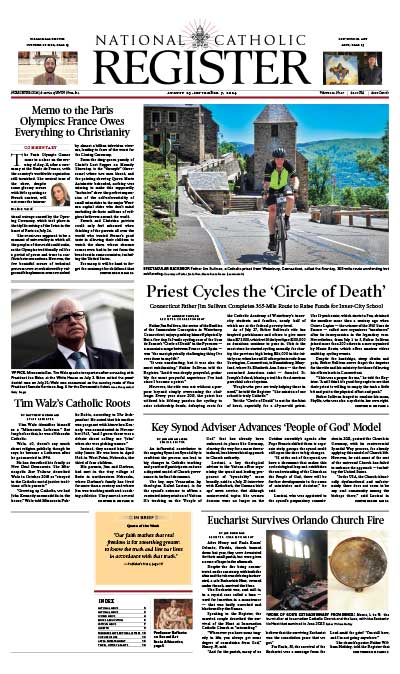Pope Francis: Human Dignity Must Be ‘Common Commitment’ of All Christian Churches
The Holy Father said rapid technological developments have profoundly shaped how society understands what it means to be human in our world today.

Pope Francis this week congratulated Catholics and Orthodox Christians for collaborating together for the XVII Inter-Christian Symposium taking place Aug. 28–30 in Italy.
This year’s symposium, titled “What Is Man? In the Time of Anthropological Mutation” and taking place in Trani, Italy, seeks to reflect upon the challenges that all Christians face in upholding the dignity of each person during a time of a cultural “revolution.”
In the letter sent to Cardinal Kurt Koch, prefect of the Dicastery for Promoting Christian Unity, to be shared with organizers and participants of the symposium, the Holy Father said rapid technological developments have profoundly shaped how society understands what it means to be human in our world today.
“What is happening nowadays could be defined as a real revolution,” the Pope wrote. “The development of artificial intelligence and the incredible developments in the field of science force today’s men and women to rethink their identity, their role in the world and in society, and their vocation to transcendence.”
“In fact, the specificity of the human being in the whole of creation, its uniqueness compared to other animals, and even its relationship with machines, are constantly being questioned,” he added.
Participants of this year’s symposium, organized by the Franciscan Institute of Spirituality of the Pontifical University Antonianum and the Department of Theology of the Orthodox Theological Faculty of the Aristotle University of Thessaloniki, were encouraged by the pope to have a spirit of openness and inclusivity so as to properly address the anthropological questions raised during the three-day conference.
“It is not possible to react only with denial and criticism. Rather, a profound reflection is needed, capable of renewing the thinking and choices to be made,” the pope asserted.
“In light of the teaching of sacred Scripture and Christian tradition, it is necessary to reiterate that every human being is entitled to dignity by the mere fact of existing, as a spiritual being, created by God,” he added.
In his letter, Pope Francis stated that a person’s decision on whether or not to “act in accordance” with his or her dignity, as well as their socio-cultural, political or economic circumstances, should not deter Christian churches from working together to uphold the dignity of every person.
“The defense of this dignity in the face of very concrete threats such as poverty, war, exploitation, and others represents a common commitment for all the churches, on which we must work together,” the pope exhorted in his letter.
In April, the Vatican released Dignitas Infinita (Infinite Dignity), in which the Dicastery for the Doctrine of the Faith stressed Catholic teaching on the importance of the human person and condemned “grave and current violations of human dignity” in our time.
The declaration outlined specific concrete violations against human dignity recognized by the Church including human trafficking, sexual abuse, abortion, and surrogacy as well as “digital violence.”
The document echoes Pope Francis’ call to all Christians to “defend human dignity in every cultural context and every moment of human existence.”












